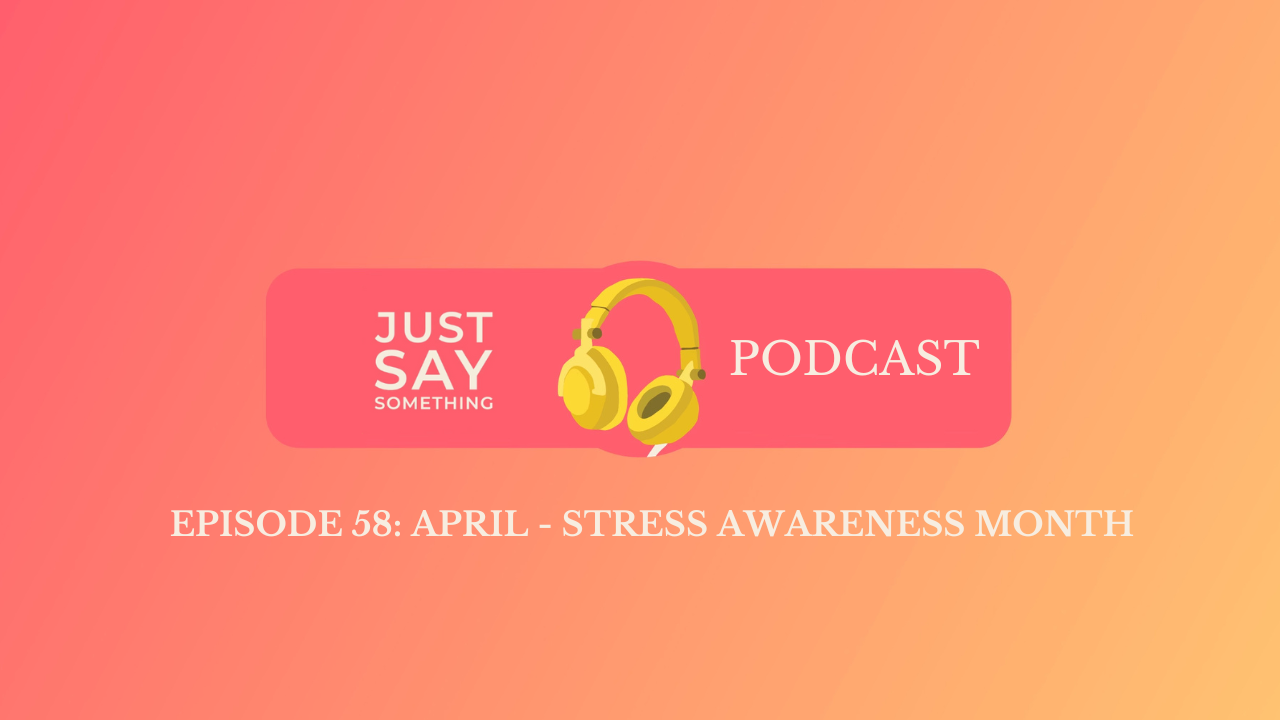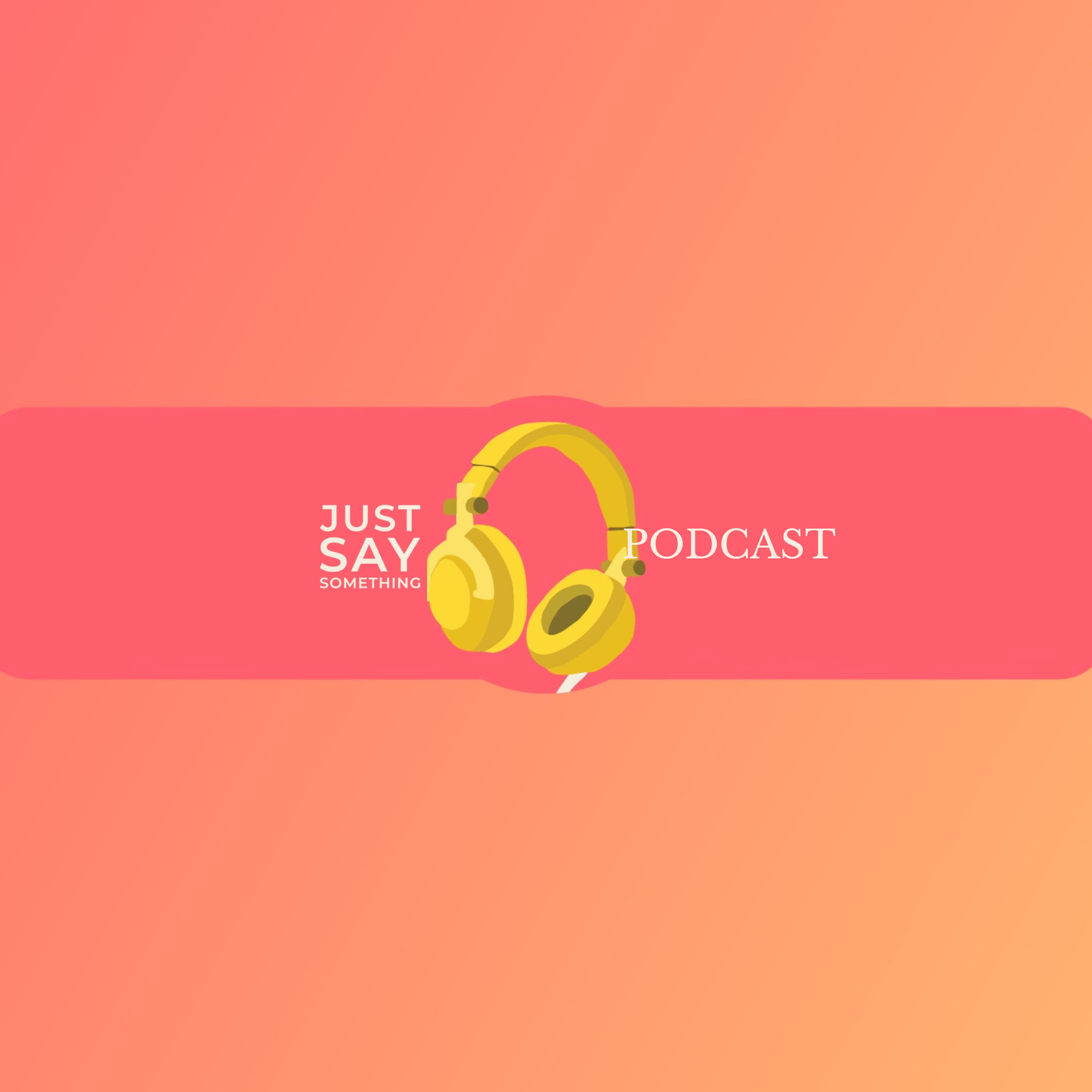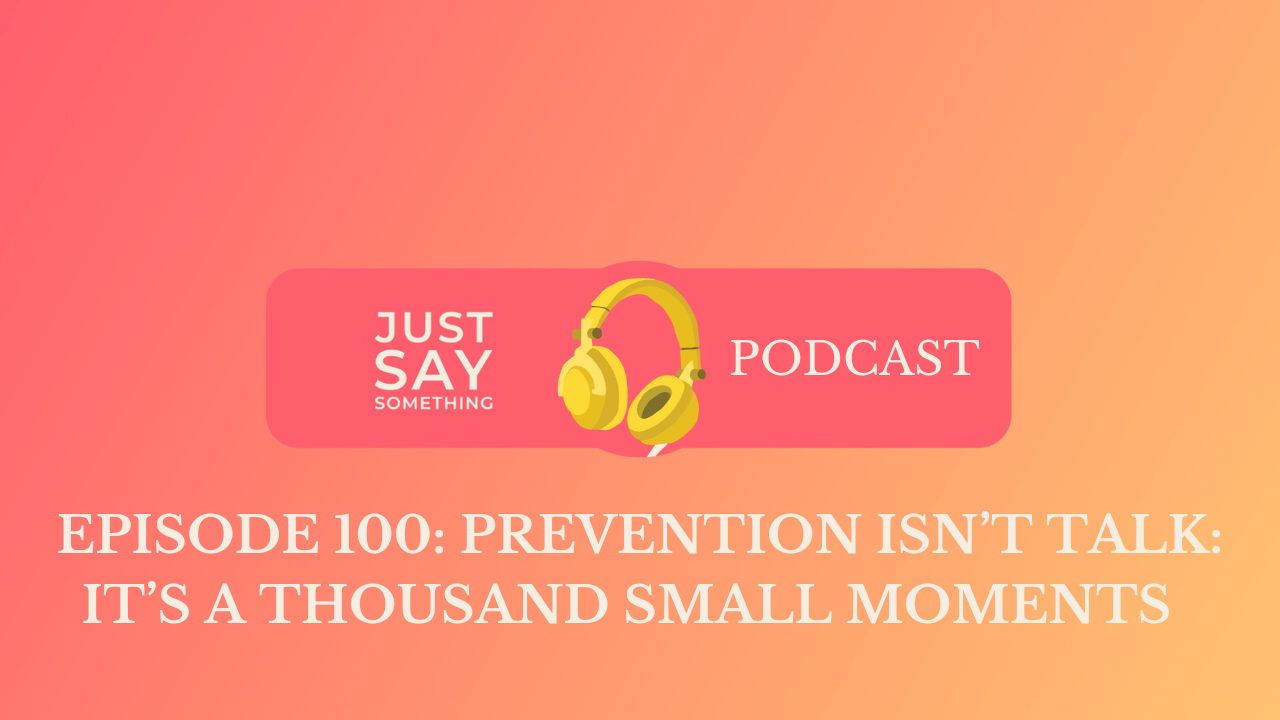Episode Transcript
[00:00:09] Speaker A: Well, hello there. Once again, this is Philip Clark from just say something. And welcome back to our weekly podcast.
So we have a special conversation that we're going to have today.
You know, ever since I've been at just say something. And it's always been tobacco, alcohol, or other drugs. And so most people don't consider tobacco being the drug, but it's the nicotine within the tobacco that is the addictive piece. And then all the other thousands of chemicals are what will cause.
Today we're talking with. We have back Mr. Stacey Ashmore. And welcome back, Stacey.
[00:00:55] Speaker B: Glad to be back, Mr. Clark.
[00:00:57] Speaker A: And so last time we were here, we were talking about impact. This time, let's talk about our tobacco programs in schools in the community.
And so you've been with. Just say something for what? 20 years.
[00:01:15] Speaker B: 20 years.
[00:01:17] Speaker C: Okay.
[00:01:17] Speaker A: And were we going into schools 20 years ago?
[00:01:21] Speaker B: You was going into schools 20 years ago, and I believe you was going into schools when you first started up, because it's a prevention program, drug awareness. And so we was trying to get in touch well with the kids.
[00:01:41] Speaker A: So I started here in 92, and I was immediately thrown into schools.
We were the first organization to do counter tools.
[00:01:54] Speaker B: Yes.
[00:01:54] Speaker A: Which is a curriculum for fifth and 6th grade students.
You look at why people smoke, you look at advertising, you look at the cost and all those things that the kids can more or less identify with. And so we've been doing tobacco for a mighty long time, 40 years at least. So tell us about some of the tobacco programming that you're doing now. What grades are you in front of? Are you presenting to more than others?
[00:02:31] Speaker B: We are in front of probably right now a lot of the middle schools, but we also into high schools where we are trying to do parenting educational classes with the parents about the ecigarettes and the jewels that we are having some serious problems with throughout this country with our middle schools and high school students.
[00:02:52] Speaker C: Okay.
[00:02:53] Speaker A: And if a student is part of one of your programs, is it 2 hours? Is it all day? Is it just a class time? How long is that for presentations?
[00:03:06] Speaker B: When the schools invite us to come in, it's usually an hour long program.
But if they have an ISS program or they have several kids that they're caught smoking or juuling in school, they usually let us come in. We had a program at Wakehampton High school for 4 hours.
[00:03:25] Speaker C: Okay.
[00:03:26] Speaker A: And so during this time frame, what do you cover?
[00:03:29] Speaker B: Well, we cover from A to Z when it comes to tobacco and ecigarettes, and we also tell some stories with that. We talk about the physical and the mental health that the damage is going to cause that will be with that child. We also talk about the health. We talk about how it's going to affect their body, their lungs, their kidneys, their brain, their skin, their hair. We go from A to Z with our topics.
[00:04:02] Speaker C: Okay.
[00:04:03] Speaker A: What's the one thing, when you're doing these presentations that kids have the strongest reaction to when they find out there's.
[00:04:13] Speaker B: Over 4000 chemicals that's in a cigarettes and how many people die that could be prevented every year? And that's like 400,000. And those number has inclined up to about 500,000. Now.
[00:04:27] Speaker A: So roughly in the world, we lose about the population of Greenville county every year due to tobacco.
[00:04:34] Speaker B: About 1.2 million around the world.
[00:04:36] Speaker C: Okay.
[00:04:37] Speaker D: All right.
[00:04:38] Speaker A: So if a school wanted to find out more about having us come in and do a program, how would they do that?
[00:04:46] Speaker B: They would just call us here at just say something or go to our website, and they will go to program.
And from program, they will go find the program where it say program request, scroll down to the bottom where it will say request form. Fill that form out and submit it back to us. And if they haven't heard back from us in 24, about 48 hours, they should call the office to see why not.
[00:05:15] Speaker C: Okay.
[00:05:16] Speaker D: All right.
[00:05:17] Speaker A: So typically, when we go out to do a program or do a community event, and we're talking about tobacco, yes. We have something that's typically on the table that really fascinates kids, and sometimes it makes parents go, yuck, what are those that am I talking about?
[00:05:37] Speaker B: We have our lungs, which they are naturally pig lungs. They are healthy lungs. And there's a bad lung, that smokeless lung. We can pump those lungs up to see how healthy lungs works and operate compared to a lung that's been smoking a pack of cigarettes for seven years and how it just barely inflates as we pump air into it. And also we have Mr. Gross mouth, which it shows the damage what nicotine could do to your teeth and to your mouth over years. And also we have tar. And on the table, that's one of the chemicals that change the colors of our lung from that pretty pink to that dark black tobacco like lung. And also we have some smokeless tobacco that's on the table because a lot of people don't think about smokeless tobacco causing cancer.
[00:06:34] Speaker C: Okay.
[00:06:35] Speaker D: All right.
[00:06:36] Speaker A: So as we bring this particular episode to a close, is there a particular story that comes to mind for you that you've been out doing a program? Then after that program, a child or a kid or maybe even an adult comes up to you and says, oh, man, Mr. Stacey, I wish I had known or something along that line you could share.
[00:07:02] Speaker B: Yes. Well, one of the stories I always share is my father was a chain smoker.
He started out at twelve years old, his first cigarettes, and then it increased it when he went into the military. He was saying that he got the military, the government gave them free cigarettes and Coca Cola.
And I tell the kids, I say, you see, Mr. Gross mouth, I say this right here, I wish my father did have teeth like this. It was 1000 times worse. It took 20 years off of his life. He died at the age of 62.
And also it damaged that from doctors saying the second hand smoke also damaged my mother heart, where she had heart trouble for like 20 years. At the age of 84, she passed away because of heart disease. And I tell him, hey, I say, really? I love both of my parents. I love my dad. And by the time I was really just getting to know who he were, he passed of lung cancer, brain tumors. And this is something that could have been prevented if he would have never picked up a cigarette. And that's why I stress to parents when I go out and talk with them to say, back then, we did not know the damage cigarettes will cause. We did not know it was going to cause the life of 400,000 people every year. But now we know the damage, what these ecigarettes and jewels can do. That's why it's so important that you talk with your children and we go out and continue to do the education out in the schools. I don't care if it's elementary to high school, to let these kids know that they are valuable, they are our future, and they deserve to live a strong, healthy life.
[00:08:50] Speaker C: Okay.
[00:08:50] Speaker D: All right.
[00:08:51] Speaker A: Thanks, Stacey. I think that's a great note to end this conversation on. Again, if you would like to have a tobacco or vaping education prevention program, you can always call us at area code 864-467-4099 or you can go to our website, just say something, sc.org. Go under programs and request a program. Once you fill that out, we'll be back in touch. All right, Stacey, thanks again for joining us today. And until next time.
[00:09:24] Speaker B: Yes, sir. Thank you.


